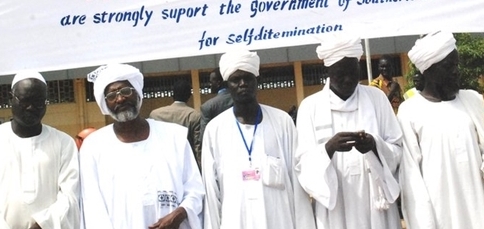Muslims in South Sudan should be given due representation in government institutions at the national and state levels, demanded a leading member of the Muslim community.
He said this at a consultative meeting with members of the national dialogue in Juba on Monday.
Al-Fekki Chol, a member of South Sudan’s Islamic Council, said their representation in government institutions would ultimately help them fulfill some religious obligations.
“We need to be empowered as Muslims because we are a minority. We have no many Muslims who are working now. We need ministers and MPs who are Muslims so that we take Zatak from them,” he said, referring to the giving of alms to the poor and needy which is one of the five pillars of Islam.
“It is necessary that Muslims should be part of policy making, and governors are being appointed, so we need a governor to be appointed to help the Muslim community,” he said.
Al-Fekki further said the Muslim community is supporting efforts to bring about peace and stability in South Sudan. “We want to be participating effectively at all levels of the national dialogue process,” he said.
Al-Fekki, who is also a lawyer, pointed out that they want the government to pass laws regulating Muslim families and education for Muslim children in South Sudan. “We want the government to establish a department for Islamic syllabus in the country,” he said.
Majority of South Sudanese follow Christianity or traditional religions but an estimated 6% of the population is Muslim, according to recent researches.




